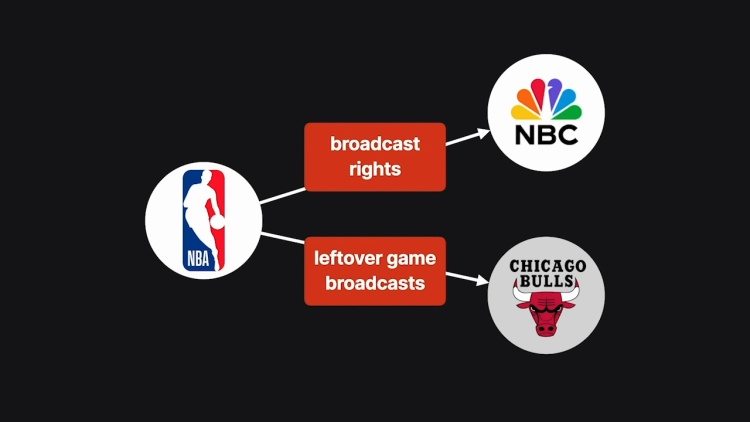Chicago Professional Sports, Ltd. Partnership & WGN v. National Basketball Association (Bulls II)
United States Court of Appeals for the Seventh Circuit
95 F.3d 593 (1996)
- Written by Craig Conway, LLM
Facts
The Chicago Professional Sports Ltd. Partnership (the Partnership) (plaintiff), operators of the Chicago Bulls basketball team, wanted to increase television coverage of Bulls games, featuring its star player, Michael Jordan. The Partnership got together with WGN (plaintiff), a local Chicago television “superstation,” to carry the telecasts into homes of cable and satellite customers across the country. The National Basketball Association (NBA) (defendant) sought to block the increase in the number of broadcasts. The Partnership and WGN filed suit against the NBA alleging violations of antitrust laws. In Bulls I, the court of appeals affirmed that the Bulls and WGN were authorized by injunction to broadcast 25 or 30 games per year. Since that decision in 1992, the Bulls and WGN wanted to broadcast even more games, and the NBA wanted to impose a “tax” on the games broadcast by all superstations to a national audience. After a nine-week trial, the district court made the 30-game allowance permanent and held the NBA’s $138,000 per game “tax” excessive. The Bulls and WGN appealed, claiming they should be allowed to broadcast 41 games per year. The NBA appealed, arguing that the antitrust laws permit it to fix a lower number of games to be broadcast and to collect the tax it proposed.
Rule of Law
Issue
Holding and Reasoning (Easterbrook, J.)
Concurrence (Cudahy, J.)
What to do next…
Here's why 899,000 law students have relied on our case briefs:
- Written by law professors and practitioners, not other law students. 47,000 briefs, keyed to 994 casebooks. Top-notch customer support.
- The right amount of information, includes the facts, issues, rule of law, holding and reasoning, and any concurrences and dissents.
- Access in your classes, works on your mobile and tablet. Massive library of related video lessons and high quality multiple-choice questions.
- Easy to use, uniform format for every case brief. Written in plain English, not in legalese. Our briefs summarize and simplify; they don’t just repeat the court’s language.





